Keeping stock of a warehouse full of solar components requires a tracking system and trained personnel to run it. It’s a large undertaking, so solar installers working at smaller scales might find the warehousing services offered by distributors more economical than doing it themselves.
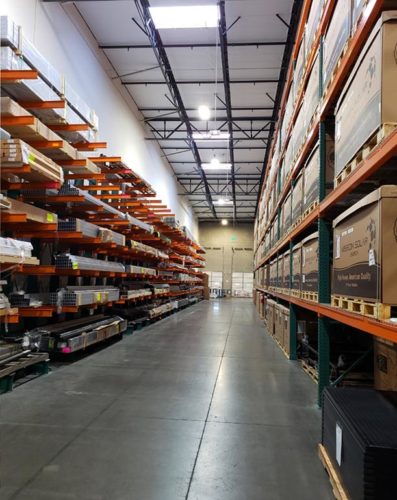
Distributors keep accurate stock of warehoused solar equipment, allowing installers to easily order components for projects. Credit: Soligent
“There are advantages to partnering with a distributor to manage the warehousing. That distributor has scale, and with scale comes economies of scale,” said Tom Bone, CEO of CivicSolar, a solar distributor. “So, at least in theory, it is less costly for the distributor to operate the warehouse.”
A distributor’s role in solar is buying specific equipment in bulk, warehousing it and shipping it to clients. Distributors have the purchasing power to import components from international manufacturers, especially those impacted by tariffs, at less profit loss than an individual installer could. In other words, distributors can save solar installers time and money when it comes to component acquisition.
There are cost considerations for distributors like product markups and competitive market prices for individual components, but they still have greater purchasing power and the ability to offer a wider variety of equipment than the average solar installer.
“Most of the manufacturers do not have large sales teams or carry much inventory of product,” said Jim White, founder and CEO of The PowerStore, a Texas-based solar distributor. “They rely on their main distributors to do their selling and stocking of the product. With most of the manufacturers, we are purchasing containers directly from their manufacturing plants, bringing them to our warehouse in Texas and distributing from there.”
Distributors have pre-established warehouses that are insured and staffed for keeping accurate inventory counts. Employees are generally familiar with the components they’re selling to installers, often having hands-on time with equipment and shipping bundled compatible components. Like in CivicSolar’s case, some distribution salespeople have engineering experience and can themselves design solar systems.
When selecting a distributor for its warehousing services, look for one that’s proven to be responsive. It’s necessary for a distributor to be accountable for verifying inventory balance, Bone said.
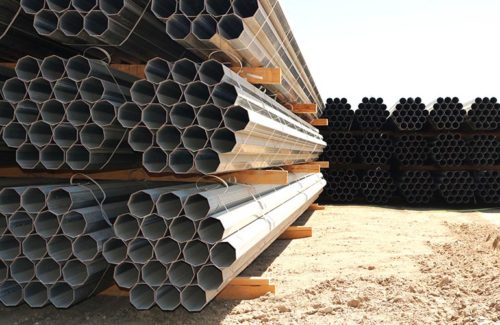
For solar contractors selecting warehousing services, sources recommend choosing distributors with consistent responsiveness and practical product knowledge. Credit: RP Construction Services
“Responsiveness is a key value for us, because when we respond to a contractor, we make the contractor’s problem our own,” he said. “We become partners in that business, and we become their supply chain partner.”
Bone recommended consulting industry peers on which warehousing services they use. Remaining reliable and consistent in every interaction and transaction is a necessary quality of a distributor.
“Having a distributor who actually knows the product well enough to know if you’re getting the right or wrong parts can advise you on what to use on a jobsite [and] is super important,” said Jon Doochin, CEO of Soligent.
He said the focus for a solar contractor on a rooftop should be installing the system, not worrying about which product solutions are the most compatible.
Installer-run warehouses
The prospect of opening a warehouse as an installer means an initial disruption in cash flow and the responsibility of staffing it.
“As soon as you start relying on a warehouse and you think that you have an extra 40 microinverters in the back for tomorrow’s project, and it turns out that there are actually only 37, that’s a very big deal for your business’s course of operation,” Bone said. “There are those costs attended to a warehouse and then there’s expertise. Will you have the in-house expertise? Or will you onboard that expertise? Or are you OK with making mistakes and learning your way into that warehouse management expertise?”
Installers with warehouses can buy directly from manufacturers, but this method’s success is based on how quickly they can move that product and install it. Installers can also inventory smaller bundled packages from distributors for projects planned that workweek, which can be lower-cost and lower-risk for degrading value of components. Keeping equipment on the shelf for too long means newer, better components are likely being manufactured to replace them, and that can mean money loss and waste for an installer with a warehouse.
But installers don’t have to rule out maintaining a warehouse entirely. For contractors that are big enough, it might make more sense to keep a larger in-house inventory instead of relying solely on a distributor’s warehouse.
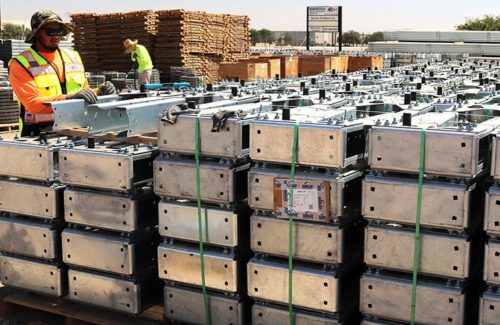
Solar installers can choose to maintain their own warehouses, giving them the option to keep a dedicated backstock of solar equipment and still use a distributor to supply products for upcoming projects. Credit: RP Construction Services
“I think there’s a lot of reasons to have a small warehouse and I think our industry is subject to supply shocks,” Doochin said. “One day you get a supply chain shock and you have a 10% tariff pass through another day, and all these things affect jobs. So, holding inventory would be helpful to your guys.”
It all comes down to installer preference. Keeping inventory of a personal stock means contractors have direct knowledge of what components are available, and what needs to be picked up or delivered. Distributors can still supply components for inventory at a solar installer’s warehouse. Doochin framed warehousing as “control of your own destiny.”
SunRenu Solar, an Arizona solar installer, has kept a warehouse for stocking excess solar components for the last six years. While it’s not on the scale of a distributor, SunRenu has been able to store broken, non-compatible or outdated components, and even use leftover equipment to build company-owned solar systems for churches and non-profit organizations.
“It’s worked out for us to buy a small percentage of materials over what we need [for] each job,” said John McDonnell, managing member and founder of SunRenu Solar. “We pull as much as we can from our stock that minimizes the cash outflow due to material inventory.”
RP Construction Services (RPCS), an Array Technologies tracking system installer, began maintaining its own warehouse operation in January 2019. The company has facilities in Bakersfield, California, and Central Texas, which require four to eight full-time employees to operate.
RPCS got into the warehousing game to make one aspect of completing solar projects more predictable: product delivery. The company’s warehouse works at a scale that warrants the use of NetSuite management software that keeps track of shipments, warehouse locations, item receipts, bin counts and inventory.
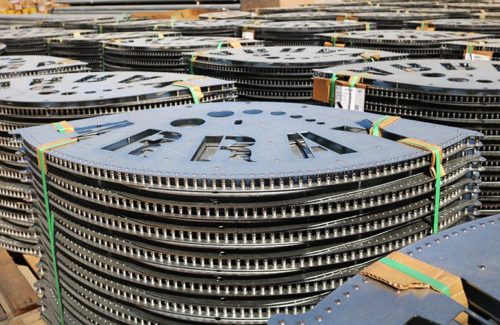
Having a warehouse as an installer can mean shifting current staff or hiring personnel to maintain it. It has the added responsibility of keeping a constant flow of inventory, while not retaining a backstock of outdated or incompatible components. Credit: RP Construction Services
“There are already enough variables like weather, subsurface conditions and the customer’s module deliveries that are outside of our control,” said Eben Russell, CEO of RPCS. “We are just trying to eliminate the inefficiencies and schedule impacts with the portions of work we can control.”
Russell said it wasn’t easy getting the warehouse up and running, and it required the efforts of the entire RPCS team. However, less than a year into operation, the company is starting to see the benefits of warehousing. RPCS can quicken the delivery process for single-axis tracking solar projects, which are used in utility-scale projects and come with longer lead times.
But even if a solar installer doesn’t have its own warehouse, it can still be worth keeping a backstock of equipment on hand.
“You’re going to lose components. The clamp’s going to fall off the roof and it’s going to land in a bush and you’re not going to find it,” said CivicSolar’s Bone. “There’s all sorts of exigencies that arise during an installation, so you, as a contractor, will be best served to have spare components at your office or at your warehouse.”

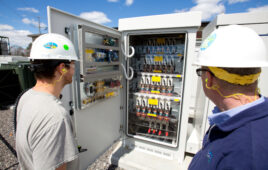

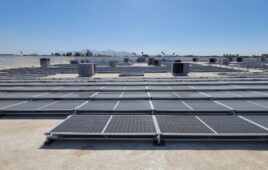
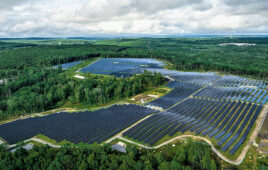
This was a, “Buy Direct vs Warehouse/Distributor” article. I was hoping you would touch on a W/D warehousing a dealers product. It’s frustrating to constantly explain a contract that states, “XYZ solar modules, or substitute brand of equal or greater value, based on availability”. That always leads to a “Why XYZ and, which brands are ‘equal or better'”, conversation. Also, that doesn’t allow a dealer to establish a relationship with the manufacturer.
If one dealer installs 8-10 residential systems per month, that dealer wants a relationship with the module/combiner/racking manufacturer, without having to warehouse product. W/D’s deliver to the site. If I go direct, I have to deliver, as well as warehouse. Direct has a lot of moving parts a W/D will absorb.
I’d like to pre-buy a month’s worth of product, knowing it will be there when I need it without having to warehouse it or flip to another brand. Will most W/D’s do that?